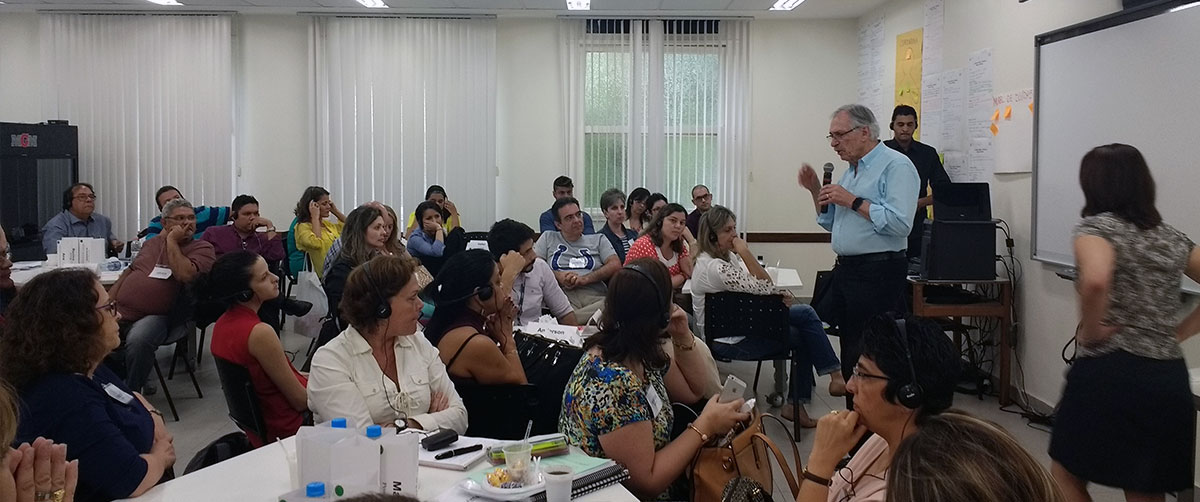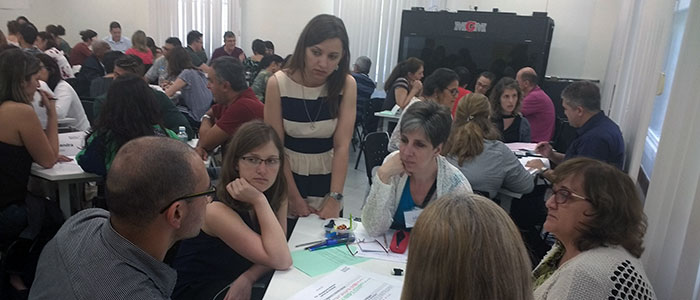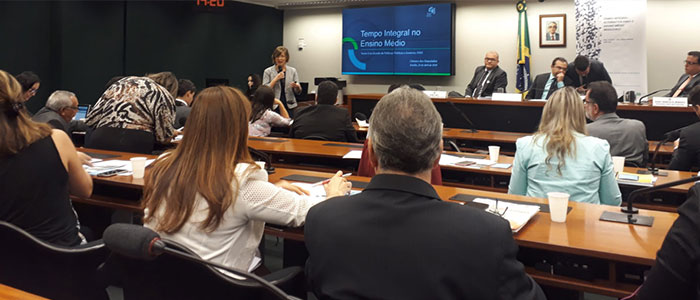
Lemann Center 2019-2020 Featured Projects
The Lemann Center works to support the success of Brazilian efforts to make a giant leap forward in their educational system. To accomplish this goal the Center relies on two main strategies. We are committed to attracting the best and brightest minds from all fields to support educational improvement in Brazil. The Center is working to build a network of researchers and other partners whose training, sense of community, and shared vision of the future will make them trailblazers of change in Brazilian education. Our ongoing projects:

Reinventing Teacher Education in Brazil: The Programa de Educacao de Docentes (PED)
For the past three years, the Lemann Center in collaboration with Canoa, a Lemann Foundation assisted institution in Sao Paulo, has begun an ambitious teacher education project, PED, based on Stanford-Canoa-Brazilian university-Brazilian municipality partnerships aimed at completely transforming teacher education in Brazil. The project has focused on especially on mathematics and has now added science teaching, both areas of great need. Currently, 16 universities in eight states have participated in the project—9 private, 4 public state, and 3 federal institutes. In 2019, more than 400 active teachers were being trained in Especialização courses across these universities and institutes. Read more

Disseminating Evidence-based Policy Research
One of the original goals of the Lemann Center was to create an institution in Brazil that would increase the impact of academic research on education policy in Brazil by strengthening the connections between education scholars and a variety of policy audiences. In 2018 we established Dados para um Debate Democratico em Educacao (D3E), which is now working in a variety of ways to ensure that current education policy debates are informed by rigorous evidence and careful analysis. D3E has published three major reports, including a recent one on FUNDEB, and has organized a number of public events for members of Congress, journalists, and other actors in the policy system. Read more

Impact Evaluation Research on Socio-Emotional Skills and Mindset
Since 2015, the Lemann Center has been conducting a directed set of projects focused on improving student mindsets and strengthening socio-emotional skills. Generally speaking, the academic literature has demonstrated that socio-emotional skills have tremendous predictive power for students’ long-run educational and labor market outcomes. In Brazil, this is certainly the case. The problem in Brazil is that the traditional models and means of teaching socio-emotional skills may not be feasible. For example, parental involvement is low in Brazil and parental educational backgrounds are diverse. Read more

Big Data Analysis of What Works in Educational Improvement
The data set involves tens of millions of Brazilian students in fifth and ninth grades, and the research will contribute to a much more profound understanding of the changing face of Brazilian education, especially on what we can learn from variation across administrative entities. This will be a main priority for Lemann Center research in the next decade, and it will involve working with groups in Brazil, such as researchers at the Federal University of Minas Gerais, which has been involved in this type of research in recent years. Read more

Research on the Impact of Mid-Level Management on State and Municipal Level Educational Improvement Using Big Data and Qualitative Analysis
Three years ago, the Lemann Center began gathering very detailed state test data in Pernambuco, Sao Paulo, and Ceará. These data have served to estimate variation among regions of states and among municipalities of aggregated student middle school test score gains (5th to 9th grade) and to explore reasons for these variations. This is proving to be a fertile ground for analyses that in a largely ignored are of educational reform: the potential effects and explanations for the effects of various aspects of middle school management on student and school performance across low or high income schools. . Read more

